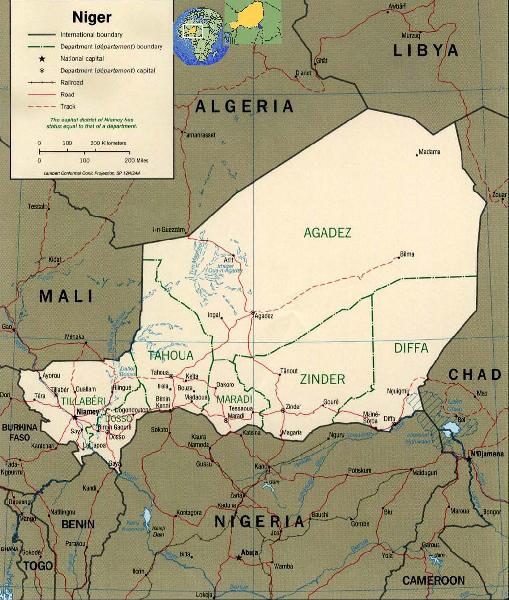Mentre nel Darfur 1.5 milioni sono monitorati e lasciati morire.

niger-map.jpg, image/jpeg, 1040x1225
Non se ne è accorto nessuno.
Qualche giorno fa Jean Ziegler, sociologo svizzero prestato all'Onu, ha lanciato un appello per il Niger, dove 3.3 milioni di persone rischiano di morire di fame nei prossimi due o tre mesi.
In maggio l'OCHA ( ufficio Onu per il coordinamento degli affari umanitari), lanciò un appello urgente chiedendo 16 milioni di dollari, poi cresciuti a 18; mezzo Gilardino, o lo stipendio di due anni di una star del calcio.
La generosità mondiale ha raccolto solo 3.8 milioni di dollari finora, contravvenendo a quello che lo stesso Ziegler ha definito "un obbligo giuridico", prima ancora che morale.
Nel determinare la situazione in Niger, alla natura crudele si è aggiunta l'opera degli organismi internazionali.
La crisi parte da quando la Banca Mondiale chiese come condizione agli aiuti la privatizzazione dei servizi nigeriani.
Una scomoda conseguenza fu la sparizione del servizio veterinario pubblico, che in un paese dedito alla pastorizia era una delle colonne della catena del cibo nigerina.
Spariti i veterinari, diventate "private", quindi costosissime le medicine, la pastorizia nigerina è crollata nel volgere di pochi anni, danneggiando anche la poca agricoltura che sfrutta ancora, e principalmente, la forza animale.
L'anno scorso poi c'è stata una invasione di locuste, che ha devastato i campi e prosciugato le riserve. A questo si è aggiunto il contributo dei politici nigerini, i quali hanno distribuito con il contagocce gli aiuti alimentari per evitare di "alterare i prezzi sul mercato interno", che infatti ora sono alle stelle.
Ultimo effetto, non trascurabile, gli oltre tre milioni di nigerini ridotti all'inedia (tra i quali 800.000 bambini) non sono ora in grado di provvedere alla preparazione dei campi per i futuri raccolti, mancando della forza per uscire dalle loro abitazioni.
18 milioni di euro, non si trovano per evitare la morte di 3.300.000 persone; per lo Tsunami ne sono stati promessi 1.000.000 di milioni (ad onor del vero i colpiti finora non hanno ancora visto quasi nulla), l'ultimo buco nei conti italiani è di 10.000 milioni di euro.
Sui media italiani la notizia non esiste.
800.000 bambini?
http://www.vita.it/articolo/index.php3?NEWSID=57864
....o "solo" 80.000?
http://www.agenews.it/notizia.php?c=4&in=14572